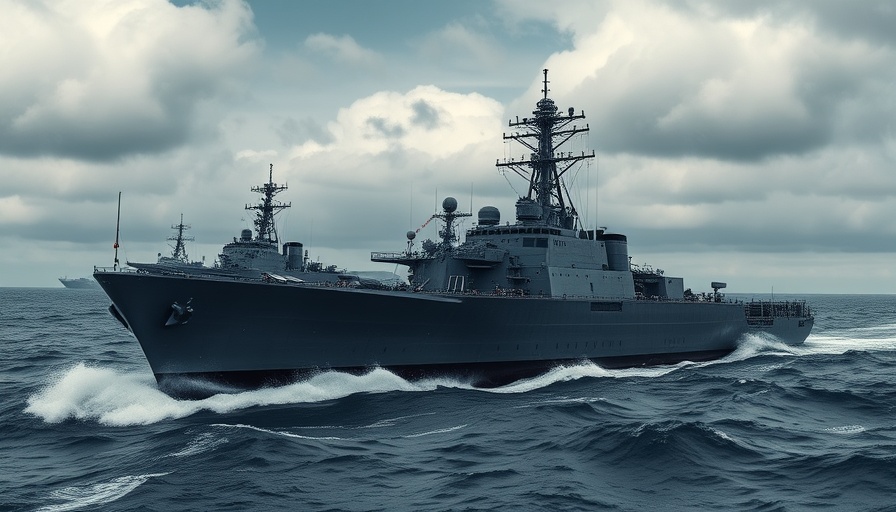
Challenges Facing the German Navy in a Changing Global Landscape
The recent developments in the German Navy's deployment have raised significant questions about its strategic readiness and balance. As Germany's largest surface ship, a Berlin Class replenishment vessel, makes its way to Nuuk, Greenland, it showcases the country's commitment to asserting its role in protecting often overlooked maritime regions. However, this move also highlights the risks associated with stretching military resources too thin, particularly in balancing the demands of the Baltic, North Atlantic, and Arctic theatres.
Germany's Expanded Maritime Ambitions and Responsibilities
Parliamentary State Secretary Nils Schmid stressed that Russia's ambitions extend beyond Ukraine, asserting Germany's obligation to its Northern allies. This statement underscores a crucial period for the Bundeswehr, as it assumes a more proactive stance in safeguarding Arctic waters amid increasing geopolitical tensions. Yet, while setting these ambitious maritime responsibilities, Germany must ensure that its naval capabilities do not become compromised by overextension.
Air Defense Capabilities: A Growing Concern
Analysts have pointed out significant gaps in Germany's naval air defense capabilities. As a nation traditionally focused on land-based operations, there is a pressing need to enhance maritime assets. A recent incident saw a German frigate and supply ship having to reroute to avoid hostile forces, signaling vulnerabilities in their operational strategy. Enhancing air defense systems, particularly layered ones to counter evolving threats like submarines and missiles, will be vital for the German Navy as it rebalances its fleet structure.
The Role of NATO and European Allies in Maritime Security
The German Navy's integration within NATO's collective defense framework is critical. However, with partners such as the UK experiencing its own fleet reductions, the pressure on Germany to take the lead is increasing. As NATO navigates a shifting security landscape, the contributions of its member states in maritime operations will determine collective effectiveness. Germany's commitment to enhancing its naval forces can provide much-needed support to allies while epitomizing shared security responsibilities.
Budgetary Changes and Fleet Modernization Initiatives
Germany's commitment to its military modernization is evident through recent legislative moves to bolster defense budgets by removing the debt brake. The forthcoming acquisition of advanced maritime systems will be crucial in addressing gaps in situational awareness and operational capacities in contested waters. With a focus on intelligence, surveillance, and reconnaissance (ISR), alongside combat capabilities, the German Navy aims to enhance its role in the North Atlantic region while remaining vigilant against Russia's formidable submarine fleet.
Future of Maritime Defense: Preparing for Emerging Threats
As geopolitical tensions rise, the German Navy's evolution into a robust maritime force will be imperative for both European and global security. The critical integration of advanced technologies and strategic partnerships will shape the future landscape of naval operations. Therefore, a comprehensive approach that emphasizes a balanced fleet, resilient infrastructure, and effective diplomacy will be necessary.
In conclusion, the challenges and responsibilities of the German Navy serve as a microcosm of the broader dynamics shaping international maritime security today. By embracing innovative practices and ensuring strategic readiness, Germany can play a pivotal role in safeguarding the interests of NATO and reinforcing collective defense as tensions escalate in various theatres.
 Add Row
Add Row  Add
Add 




Write A Comment